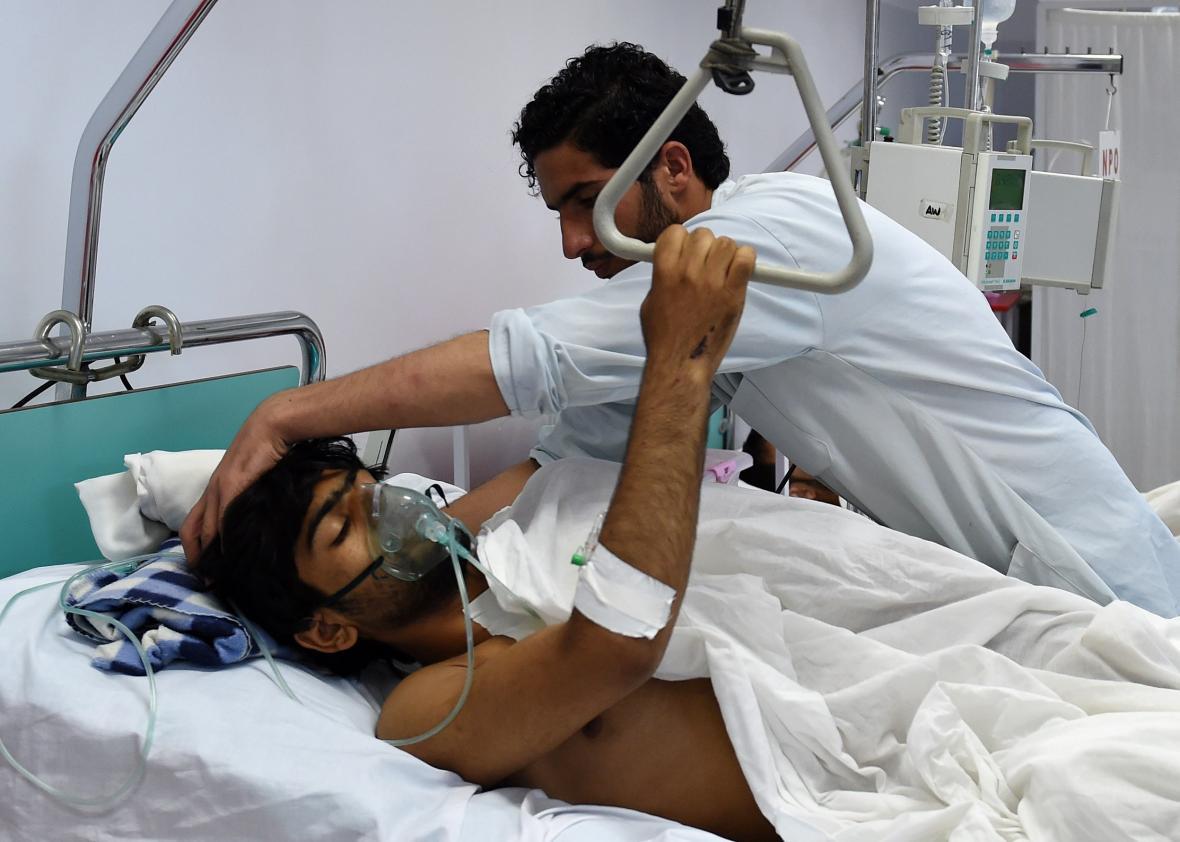Sixteen American service members have been disciplined for their roles in last October’s deadly airstrike on a Doctors Without Borders hospital in Afghanistan, but there will be no criminal prosecutions for what the military has said was an accidental attack. The Los Angeles Times reported the news after another Doctors Without Borders hospital, this time in Syria, was struck on Wednesday, killing at least 14 people.
Rebel groups were blaming the military of Syrian dictator Bashar al-Assad for Wednesday’s attack in Aleppo, the latest horrible day for the Nobel Peace Prize–winning organization.
The Oct. 3 bombing by American forces in Kunduz, Afghanistan, resulted in the deaths of “24 patients, 14 staff members and four caretakers,” reported the L.A. Times. “Some patients burned to death in their beds,” the newspaper noted.
Defense officials told NBC News that a redacted version of the Pentagon’s report from the sixth-month investigation into the attack would be released on Friday.
Here’s more from the L.A. Times story, which is well worth the read:
The 16 found at fault include a two-star general, the crew of an Air Force AC-130 attack aircraft, and Army special forces personnel, according to U.S. officials who spoke on condition of anonymity to discuss the internal investigation.
One officer was suspended from command and ordered out of Afghanistan. The other 15 were given lesser punishments: Six were sent to counseling, seven were issued letters of reprimand, and two were ordered to retraining courses.
Doctors Without Borders has alleged that the attack was a war crime. As my colleague Joshua Keating wrote at the time:
Whether or not the U.S. airstrike … was a violation of international humanitarian law depends in large part on whether the military knew the site was a hospital, and if not, whether military officials took adequate steps to figure out what they were bombing.
In a pre-Thanksgiving news dump, the since-retired commander of U.S. and NATO forces in Afghanistan, Gen. John F. Campbell, said the cause of the tragedy was “avoidable human error, compounded by process and equipment failures.” CNN reported at the time that the Pentagon’s investigation had concluded “that the facility was misidentified as a target by U.S. personnel who believed they were striking a nearby building where there were reports of insurgents taking shelter.”
Some of the personnel involved had been suspended at that time, and the L.A. Times reports that Campbell, who retired last month, said that he and U.S. Special Operations Command would be making the decision whether or not any prosecutions were warranted. Apparently, they’ve decided none are, according to the L.A. Times’ reporting.
The attack on the hospital last fall came after the city of Kunduz fell briefly to the Taliban in an embarrassing blow for that country’s military and NATO forces. On Wednesday, Reuters reported that the Taliban have spent this month launching dozens of attacks on police outposts in Kunduz, but that the main checkpoints have held firm this time in what the agency described as a signal that the security situation has improved there.
